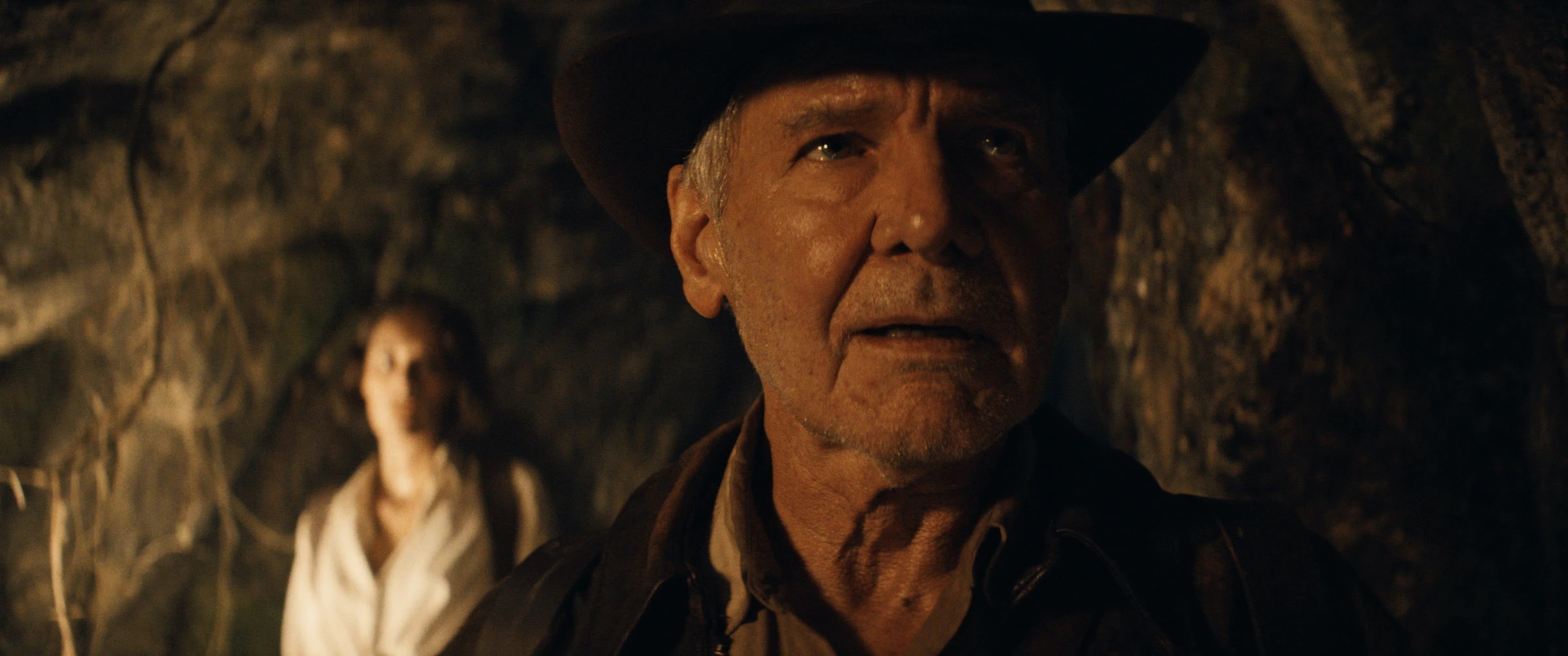
There are SPOILERS for Indiana Jones and the Dial of Destiny in this review.
The best Indiana Jones movies are driven by a character need. In Raiders, Indy needs to learn to value relationships over his ambition as well as that God exists. In Doom—which is not one of the best Indy movies, though I like it framed as a break-up movie—he learns the same thing again (well, actually, before, since it’s a prequel, which kind of undercuts <i>Raiders</i>). In Crusade, Indy reconciles with his father and finds healing for his father wound. In Skull—which I think is better than Doom—he faces up to a world that has left him behind and gets a chance to make-right his regrets.
The character need in Destiny feels contrived or, at best, inexact. What is Indy feeling as the movie begins?
Grief over the loss of his son and the subsequent dissolution of his marriage? Yes, though we are told this, not shown it.
A sense of futility in view of a life without legacy? His ignoble retirement suggests this as does his pursuit of “the one that got away” dial and his desire to stay in Grecian times at the end, but I didn’t feel that for most of the movie. That gets lost for the entire middle act to such an extent I was only able to understand Indy’s actions in ancient Greece upon considerable reflection in the weeks since I saw this.
And both those needs do not dovetail. We’re whipped (pun!) from one to the other in the story’s denouement, and Indy isn’t given a choice in either. Is that where the “destiny” thing from the title comes into this? Indy doesn’t have a choice in the end? It’s just destiny? I’m sorry, but that’s bleak. And Indy’s choices – to give up the Ark to save Marion; to close his eyes when they open the Ark; to pick the correct grail; to let it go; to marry Marion and be a better dad to his son than his dad was to him – are always, always, always what have defined the character. Indy is daring, resourceful, and smart. He’s a good man who makes the right decision in the end. But he isn’t lucky. If anything, he’s unlucky, and he shouldn’t luck into a happy ending.
The Dial of Destiny is diverting enough. It’s the best version of an Indiana Jones knock-off, but it’s still a knock-off. Phoebe Waller-Bridge is fun. Ford is giving it his all, just as he did in The Force Awakens and Blade Runner 2049, two movies that did a better job sending off one of his iconic characters than this one did. I wish The Dial of Destiny was as good as those movies. I wish it was as true to the character we love.
There are SPOILERS for Indiana Jones and the Dial of Destiny in this review.
The best Indiana Jones movies are driven by a character need. In Raiders, Indy needs to learn to value relationships over his ambition as well as that God exists. In Doom—which is not one of the best Indy movies, though I like it framed as a break-up movie—he learns the same thing again (well, actually, before, since it’s a prequel, which kind of undercuts <i>Raiders</i>). In Crusade, Indy reconciles with his father and finds healing for his father wound. In Skull—which I think is better than Doom—he faces up to a world that has left him behind and gets a chance to make-right his regrets.
The character need in Destiny feels contrived or, at best, inexact. What is Indy feeling as the movie begins?
Grief over the loss of his son and the subsequent dissolution of his marriage? Yes, though we are told this, not shown it.
A sense of futility in view of a life without legacy? His ignoble retirement suggests this as does his pursuit of “the one that got away” dial and his desire to stay in Grecian times at the end, but I didn’t feel that for most of the movie. That gets lost for the entire middle act to such an extent I was only able to understand Indy’s actions in ancient Greece upon considerable reflection in the weeks since I saw this.
And both those needs do not dovetail. We’re whipped (pun!) from one to the other in the story’s denouement, and Indy isn’t given a choice in either. Is that where the “destiny” thing from the title comes into this? Indy doesn’t have a choice in the end? It’s just destiny? I’m sorry, but that’s bleak. And Indy’s choices – to give up the Ark to save Marion; to close his eyes when they open the Ark; to pick the correct grail; to let it go; to marry Marion and be a better dad to his son than his dad was to him – are always, always, always what have defined the character. Indy is daring, resourceful, and smart. He’s a good man who makes the right decision in the end. But he isn’t lucky. If anything, he’s unlucky, and he shouldn’t luck into a happy ending.
The Dial of Destiny is diverting enough. It’s the best version of an Indiana Jones knock-off, but it’s still a knock-off. Phoebe Waller-Bridge is fun. Ford is giving it his all, just as he did in The Force Awakens and Blade Runner 2049, two movies that did a better job sending off one of his iconic characters than this one did. I wish The Dial of Destiny was as good as those movies. I wish it was as true to the character we love.

Elijah Davidson is Co-Director of Brehm Film and Senior Film Critic. Subscribe to Come & See, his weekly newsletter that guides you through the greatest films ever made, and find more of his work at elijahdavidson.com.
This is a film about a TV program (about a play?) about the production of a play about an extraterrestrial encounter in the desert somewhere west of the Rockies in the 1950s.